 Armed guards could be placed on transatlantic flights from Europe to the USA if a new security demand is agreed to by European governments.
Armed guards could be placed on transatlantic flights from Europe to the USA if a new security demand is agreed to by European governments.
The US government wants to introduce a raft of new security measures, which includes allowing so-called "sky marshals" to be seated on flights from Europe to America operated by US airlines.
As well as the demand for sky marshals, the US Transport Security Administration (TSA) has six other security demands.
Most significant of these is the demand for the 27 EU member states to supply further personal data on those European air passengers overflying US territory on their way to other destinations, but not landing in the USA.
A Memorandum of Understanding (MoU) containing the proposed measures is currently being circulated around European capitals and at the EU in Brussels. The US government wants the EU27 to each sign bilateral agreements with them, agreeing to the demands.
In return, the US government says countries which agree to the measures will be still be permitted to enable their passengers to travel to the USA without a visa.
It is reported that if a national government does not agree to the demands, then passengers from that country would need to apply for a US visa to allow them to travel to America.
Air Travel Security Measures Cause Controversy
The US security measures have caused consternation in Brussels. Some EU officials are reported to have said the demands constitute "blackmail".
In itself, the demand for sky marshals on flights is regarded by EU officials as "controversial and difficult". Armed guards on all flights would represent a reversal of existing policy - unlike in the USA, where they are mandatory, armed guards on flights in Europe are discretionary. Indeed, only seven countries from the EU27 currently use sky marshals.
The demand for extra information on passengers overflying US territory has also caused anxiety among EU officials. Brussels says it has concerns over data protection and how the extra information would be handled by US government agencies, particularly who would be able to access it.
EU member countries already provide no fewer than 19 items of information on every passenger flying from Europe to the USA, as part of an EU-US passenger data exchange programme agreed last summer.
The US says the extra information would be used to assist with the profiling of potential terrorists and assess security risks. However, EU officials believe their member countries are already providing enough information under the existing data exchange programme.
European airlines also said they were opposed to the proposals. The Association of European Airlines, a trade group representing over 30 major national European carriers, said the demands were "fully unjustifed" and had "no international legal foundation".
'New Europe' Countries Could Sign Air Travel Security Agreement
In launching the proposed new security measures, the US authorities have paid particular attention to negotiations with the 12 East European countries who have joined the EU since 2004.
Currently, citizens in all these countries (except Slovenia) have to apply for visas to enter the USA - unlike the other 15 'original' EU member nations.
EU officials believe that by targeting these 12 countries, Washington could be able to get one or two countries to sign up and then use those agreements "as a rod to beat the other member states with" - a way of getting all the EU27 to agree to the measures.
The EU says the US is deliberately dangling the prospect of visa-free travel to these 12 countries as a way of introducing the new security measures - hence the comment by some officials that the US government's plans were similar to "blackmail".
Certainly, two of the "New Europe" countries - the Czech Republic and Greece - have signalled their desire to agree to the security measures. Both countries have significant ex-pat communities in the USA, and visa-free travel would be popular. Indeed, the Czech deputy prime minister, Alexandr Vondra, has said that it wants to sign up to the measures "in the spring".
He added: "It's in our interest to move ahead [regarding visas]...we have to act in the interest of our citizens".
Despite this, EU officials have said they will be urging the EU27 not to sign the bilateral deals. Politics-watchers in Brussels say the EU wants to delay to work towards a common position between all member states.
Responding to the developments, the UK Home Secretary Jacqui Smith said the UK would be keeping an open mind regarding the proposals.
She said: "There is interest in how and whether it's possible to strengthen the security of those travelling between Europe and the US. This is a request to the EU to look at the conditions around that travel to see what more we can do to strengthen it".
Source - Airport International's Aviation Correspondent
 Armed guards could be placed on transatlantic flights from Europe to the USA if a new security demand is agreed to by European governments.
Armed guards could be placed on transatlantic flights from Europe to the USA if a new security demand is agreed to by European governments.

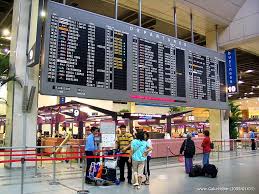

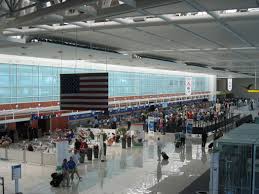

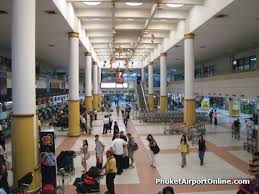
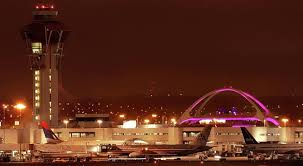
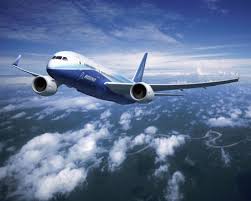
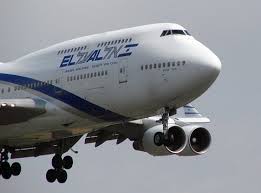



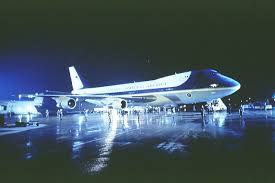
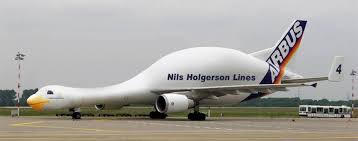
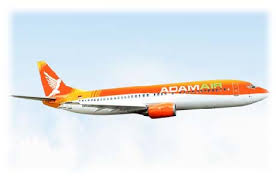
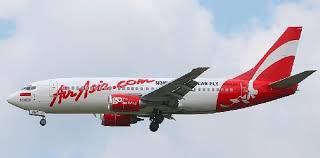
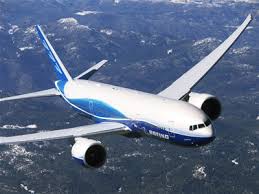

No comments:
Post a Comment